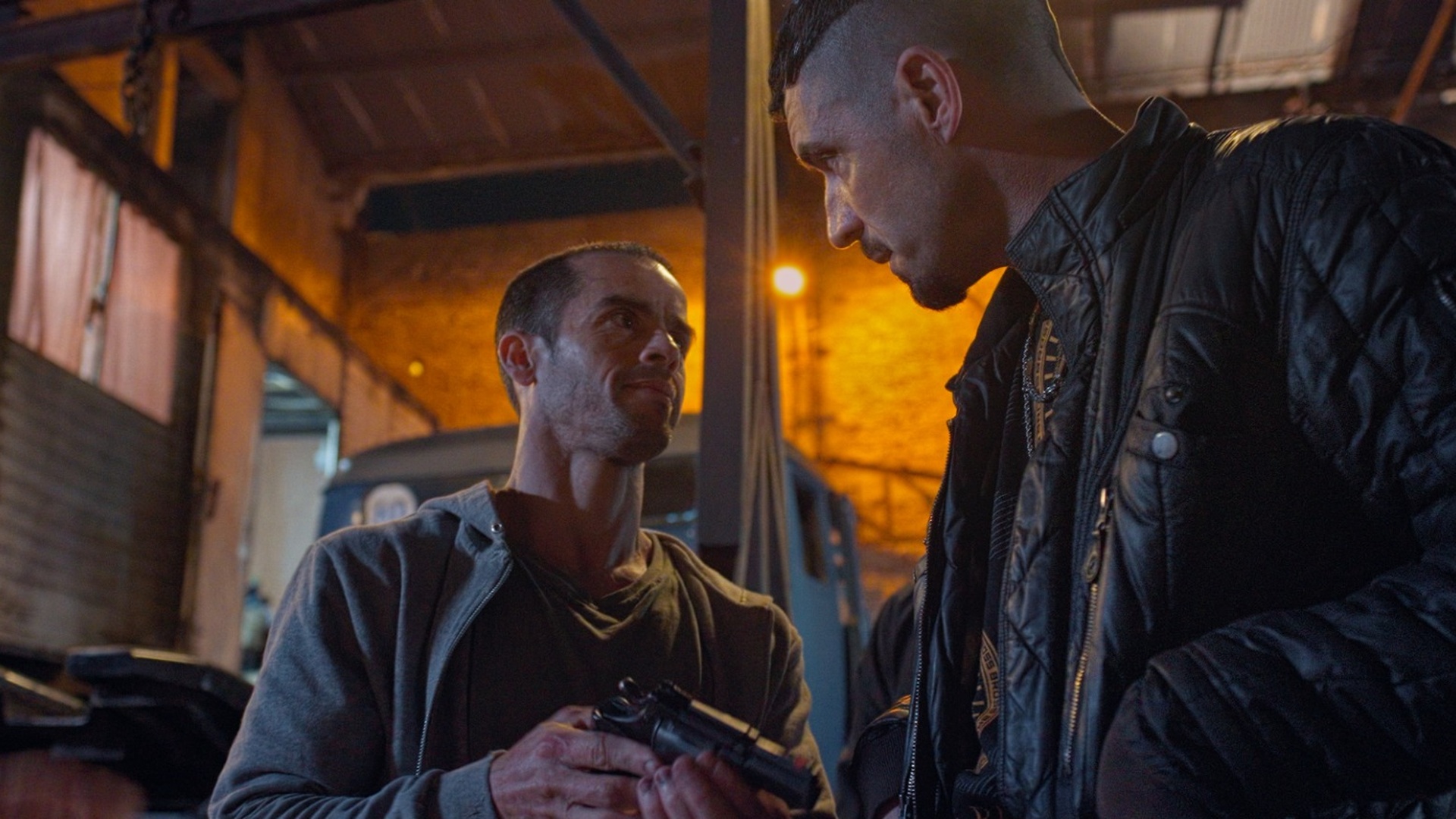Gunman
Gatillero
VERDICT: The backstreets of Buenos Aires are a deadly labyrinth in this hyper-kinetic, bravura single take thriller from Chris Tapia Marchiori.
Gunman is a gripping gang thriller wrapped up in a whirlwind of action carnage.
Set across the course of one night in the dockland neighbourhood of Isla Maciel in Buenos Aires, it follows the exploits of the eponymous Galgo (Sergio Podeley), who has recently left prison and is trying to find his way again in a territory dominated by cold-blooded gangsters and corrupt cops. Captured in a single take, the narrative follows Galgo as he is enlisted and then set-up as a fall guy, only to find himself desperately trying to survive while gunshots are ringing in the streets. He prowls a kingdom under siege from criminals in this propulsive crime drama that barely pauses long enough for audiences – or Galgo – to catch a breath.
The single take conceit might seem like little more than a gimmick during the film’s opening salvos which are full of fast-talk and wheeling and dealing. The filmmaking certainly feels propulsive, right from the moment that the film opens with Galgo robbing a convenience store and then being shaken down by the police. The fast and fluid camerawork is impressive, but maybe not necessary. It becomes necessary, though. It comes to encompass the single-mindedness of Galgo and the claustrophobia of his situation as he races through back alleys and tries to shoot his way out of trouble. This is a world where escape is impossible, and the unbroken take only emphasises this.
There are moments in which the camera veers away from the protagonist – at one point to briefly trail his perusers as the search for him, in another to listen in on a local residents group, lamenting their lot at the mercy of the Narcos and decided to take a final stand – but primarily it follows Galgo, restlessly circling him, tracking him and his movements. He’s known as a gunman, a lone wolf, and Martin Sapia’s cinematography does a great job of capturing him as he wends his way down passages and over rooftops. In other instances, the camera swings wildly – between the individuals in a stand-off for instance – mimicking the panic of the moment and only adding to the chaos of warzone-like atmosphere.
Galgo clambers through hollowed out buildings, and over crumbling walls. His journey through the Isla Maciel of this night recalling things like the Belfast of Yann Demange’s ’71. Here, Galgo is not a British soldier alone in hostile territory, but a shooter who’s been framed for killing the local crime boss The Godmother (Julieta Diaz) and is now being hunted by any and all comers. The plot point might be overblown, but the frenzy that it creates around Galgo is perfectly suited to fuel the adrenaline rush of fighting for survival.
It is not just Galgo that is fighting to survive in Isla Maciel, though. At one stage he stumbles into the home of a man (Ramiro Blas) and his daughter (Maite Lanata) who are glad that the Godmother is dead and see it as a chance to finally rid the neighbourhood of the Narcos’ malign influence. As the narrative continues, the lives of normal and generous people are destroyed by the eruption of gunfire and malice of criminal greed. Marchiori’s film both revels in the staccato of gunfire and is also reverent to its impact. This non-stop rollercoaster is certainly at its most heart-pounding when bullets are whistling past the screen but is perhaps at its most compelling in its rare quieter moments when the reality of the situation is given a chance to hit home.
Director, editing: Cristian Tapia Marchiori
Cast: Sergio Podeley, Julieta Diaz, Ramiro Blas, Maite Lanata
Screenplay: Clara Ambrosoni, Cristian Tapia Marchiori
Producers: Enrico Udenio, Pablo Udenio
Cinematography: Martin Sapia
Sound: Melisa Stasiak
Music: Santiago Pedroncini
Art direction: Ana Cambre
Production companies: Dukkah Producciones (Argentina)
Venue: Oldenburg Film Festival (Midnite Xpress)
In Spanish
80 minutes


